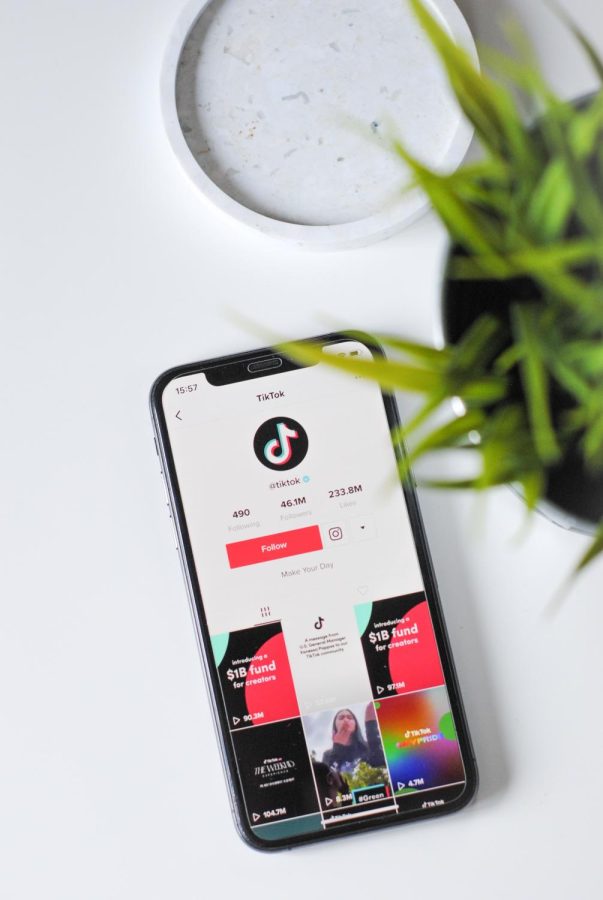TikTok: Mindless entertainment or procrastination tool?
April 8, 2023
The most popular app for teens, dominating social media for the past few years, has been none other than TikTok.
TikTok allows its users to watch and create 15-second short-form video and picture content with trending songs. TikTok utilizes an advanced algorithm to recommend content to the “For You” page. This algorithm and the data collection measures it takes have come under scrutiny in the past year.
According to a January 2023 report from Good Luck America, schools such as Auburn, Texas A&M, and U of Georgia had banned the app from their on-campus WiFi networks. This came as they were under the jurisdiction of their state governments. Few states in the United States have banned the app from federal devices under the belief that ‘ByteDance’ – TikTok’s parent company – is sharing data with China and that public opinion can be jeopardized with a tweak of an algorithm.
“A critical consideration in examining the effects of technology use on youth mental health is the issue of displacement: what other important activities are being replaced by time spent on social media? It is well-established that sleep hygiene is essential to youth mental health and development. However, prior work has reliably demonstrated a link between mobile screen time before bed and a range of poorer sleep outcomes, including shorter sleep duration, poor sleep quality, and daytime sleepiness,” wrote Brown University assistant professor of psychiatry and human behavior Jacqueline Nesi, in the North Carolina Medical Journal.
Students today are the most sleep deprived and stressed. This is likely due to social media and mobile devices emitting blue light, which interferes with circadian rhythms.
“I found myself on TikTok all the time, so if I had to be studying or doing something else or just maybe going out, I’ll be on TikTok before that or after,” said junior Connor T.
Connor has had the app for 5 years and reports a weekly average of 12 hours of use. Connor expresses that he does not feel overwhelmed by his avid use but rather emphasizes the dangers of TikTok.
“I think it can be a dangerous place because there’s a lot of different perspectives and a lot of unrealistic standards. It can definitely be a little toxic,” said Connor T.
“Sometimes I just go on TikTok instead of doing any work. I think TikTok has been very detrimental to my physical and mental health, but it makes me happy, and that is all that matters,” said junior Sophie C.
Sleep is one of the many facets of life TikTok has influenced. Many users have experienced negative effects.
“Therefore, in conjunction with the increased pace of life, ‘network society’ plays a key role in the flow of information and communication across technology as well as influencing patterns of content consumption and routine,” wrote Stanford University student Monique-Monét Munro, in “Intersect: The Stanford Journal of Science, Technology, and Society.”
“Network society,” such as the one found on TikTok, influences its users to remain constantly engaged through its stream of tailored content.
For students in high school and college who are following a rigorous academic path, the extra distraction can promote procrastination and can shift priorities.🔳

